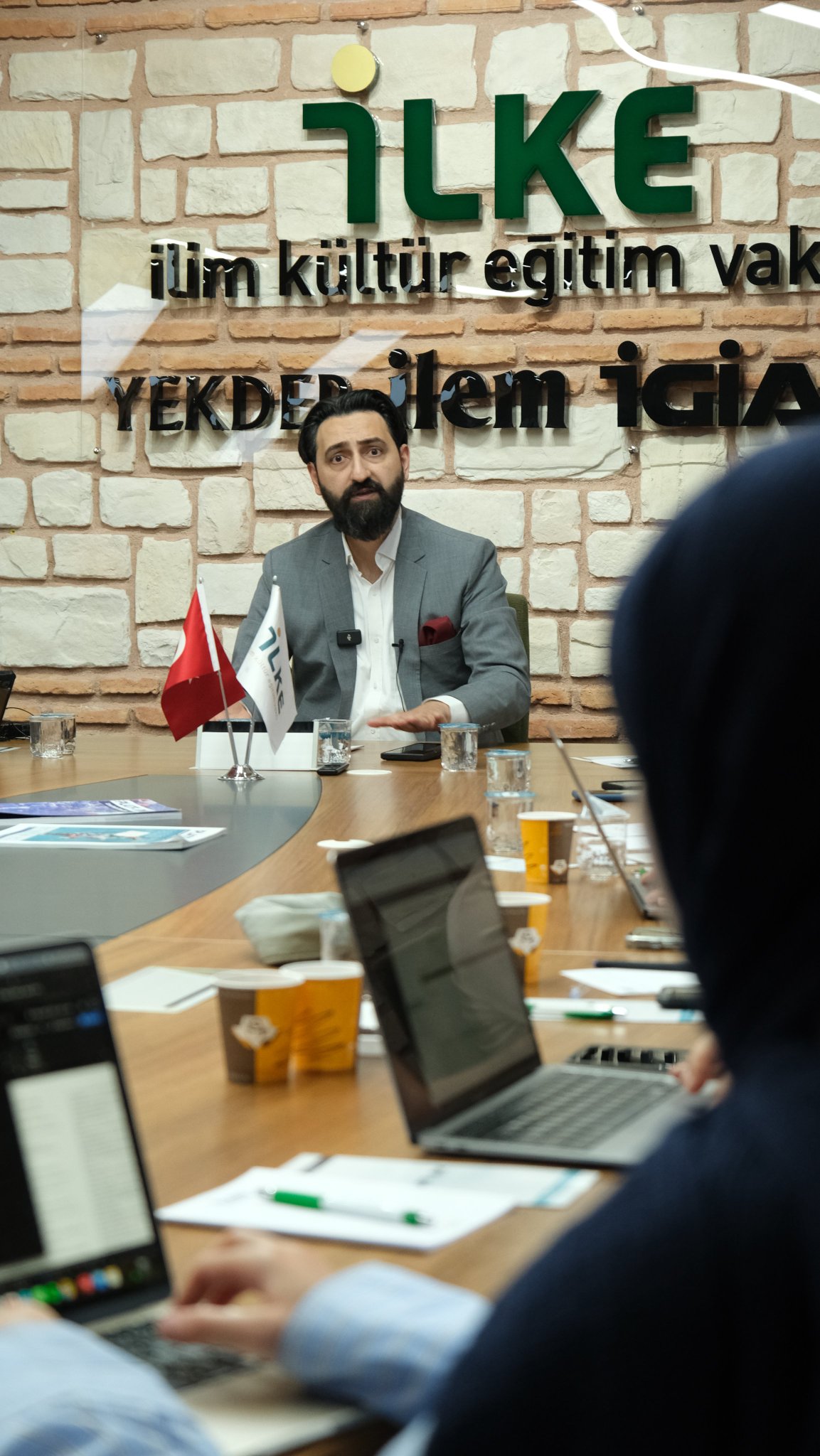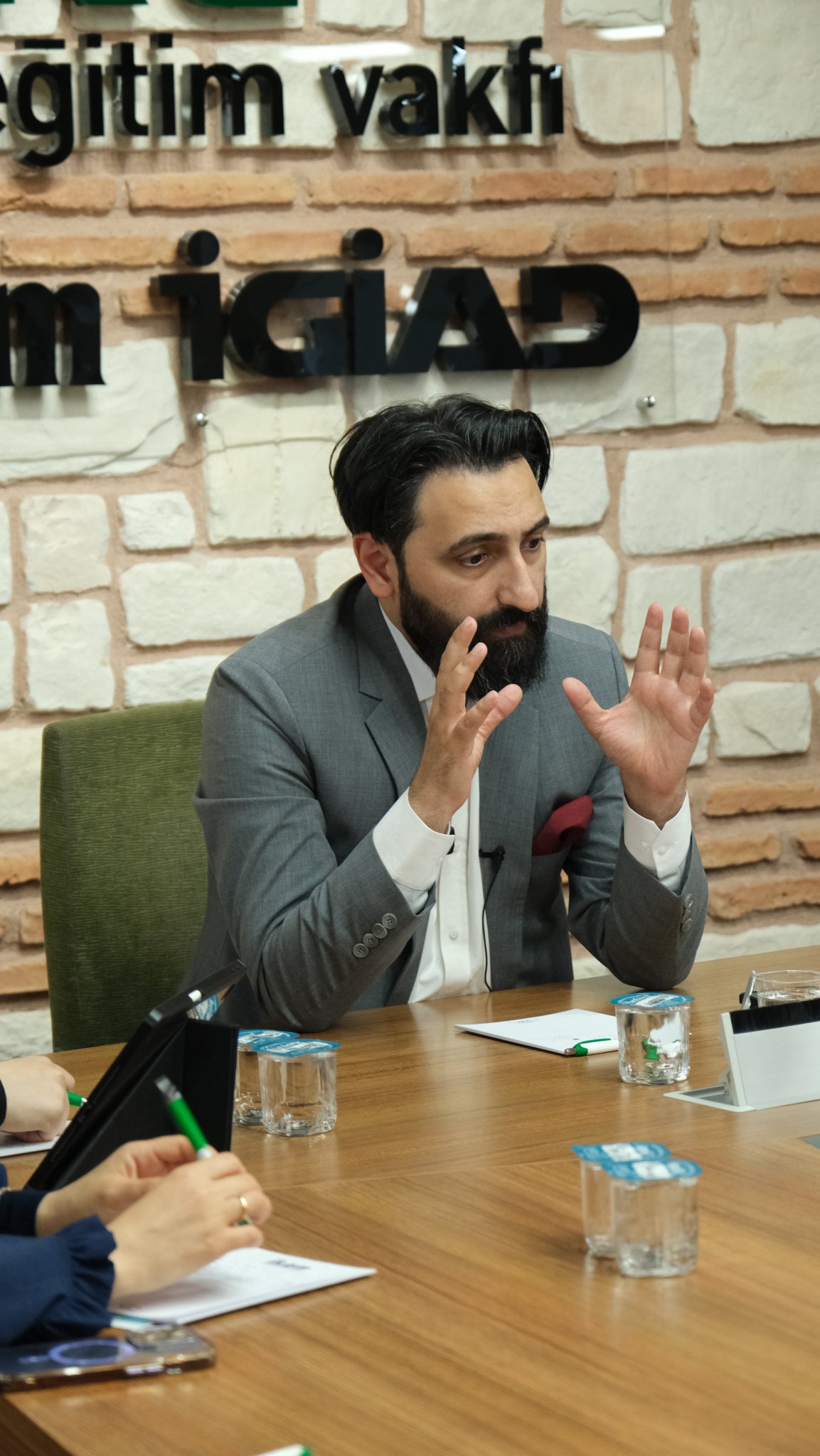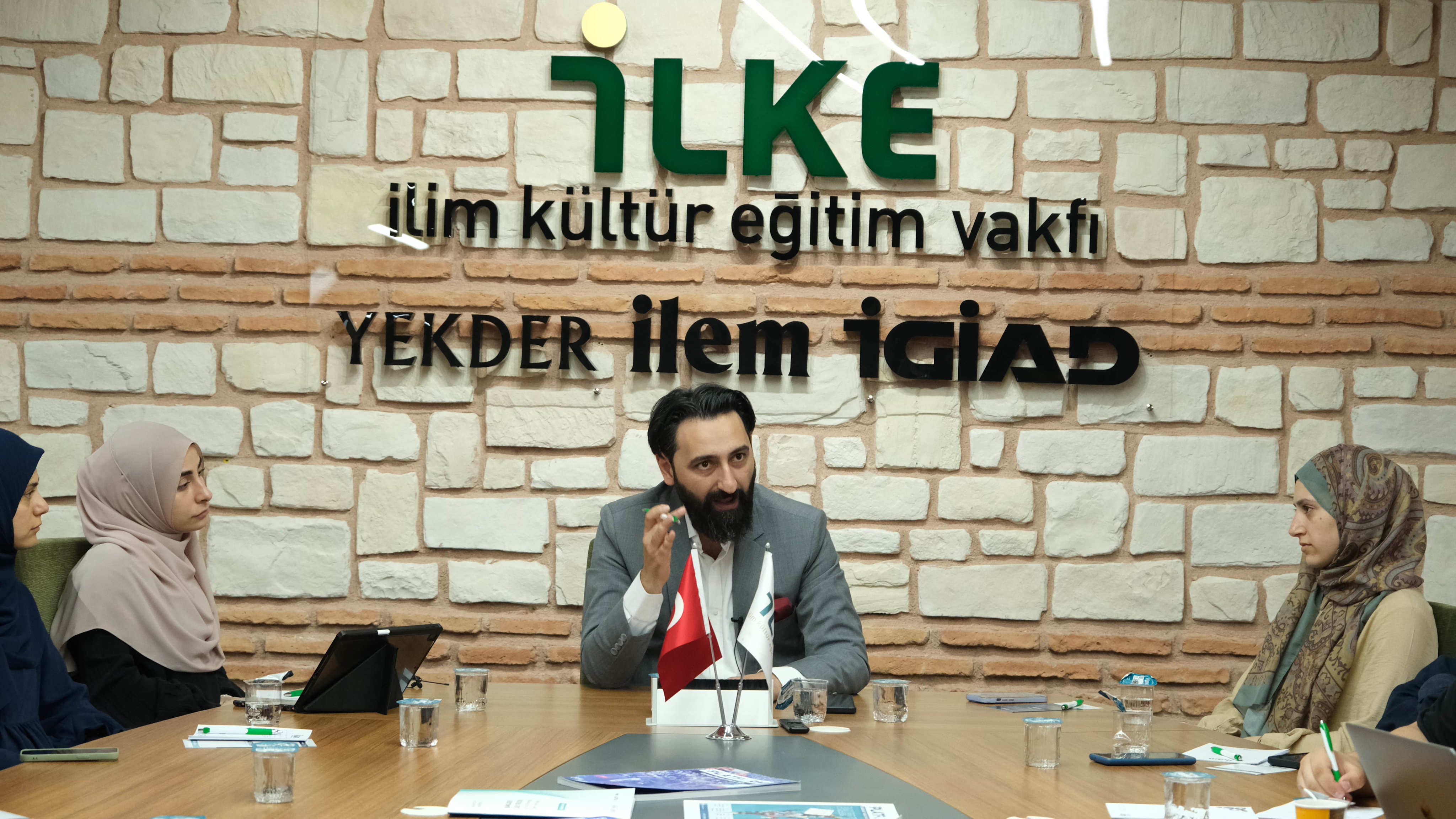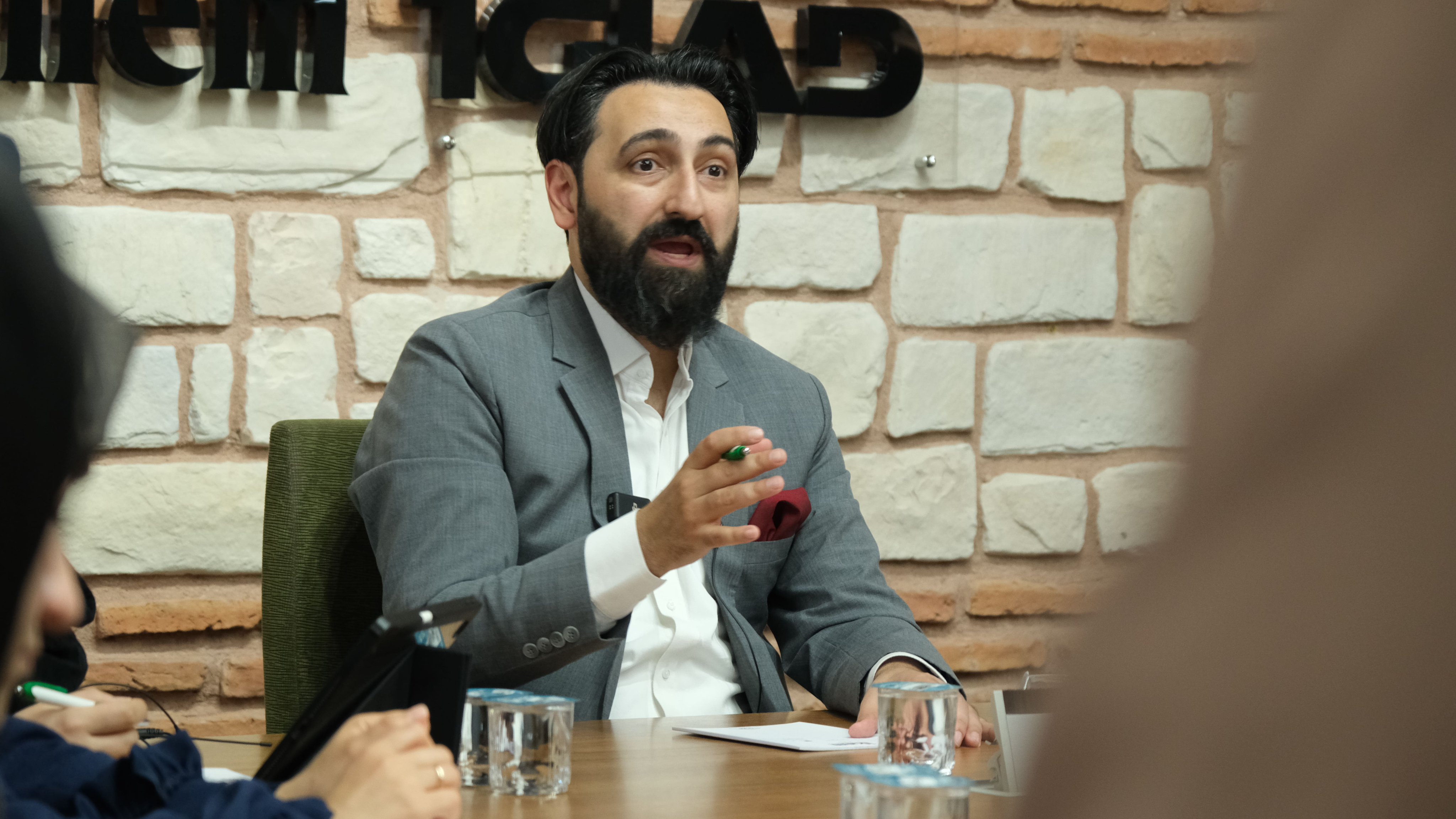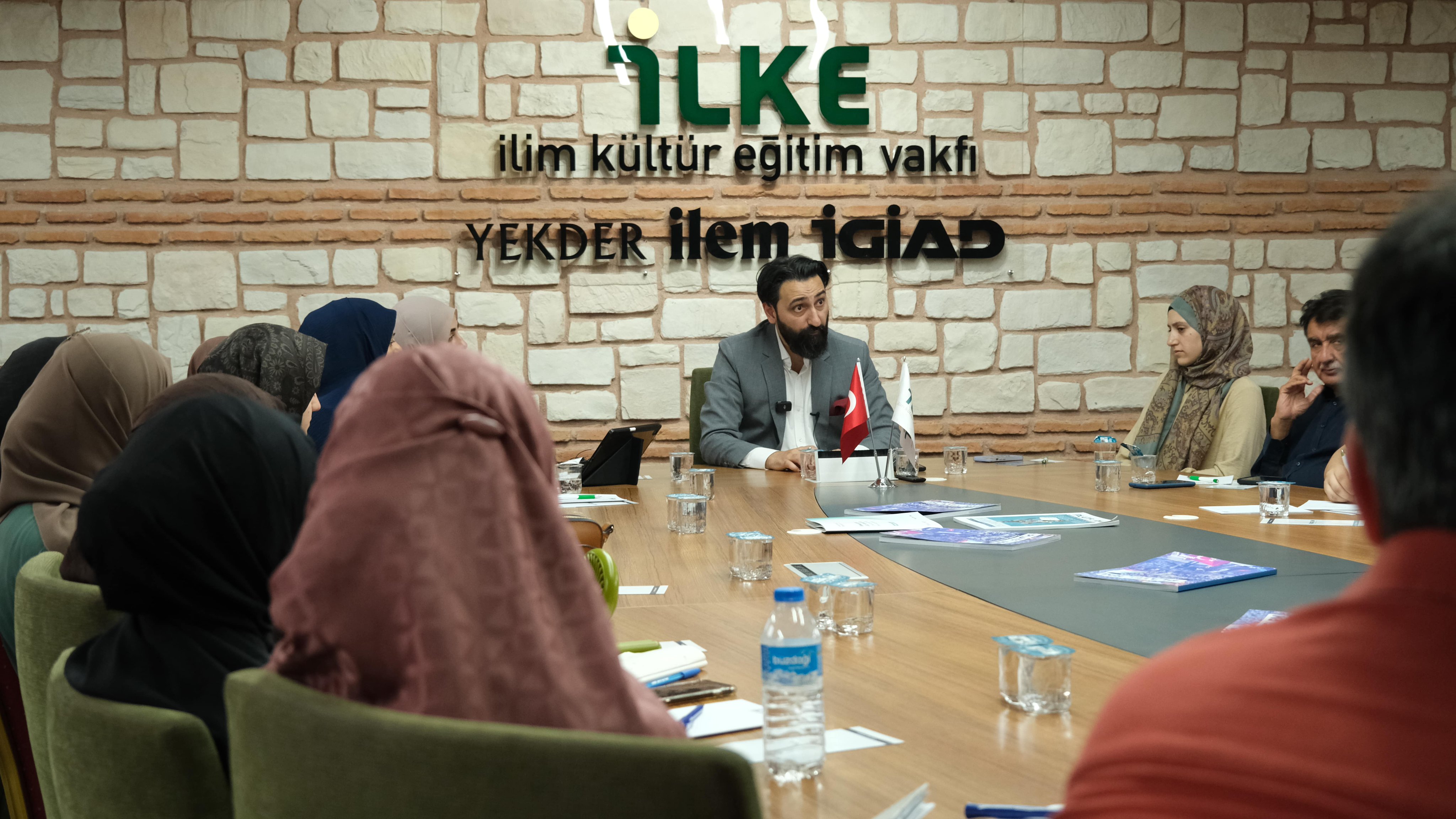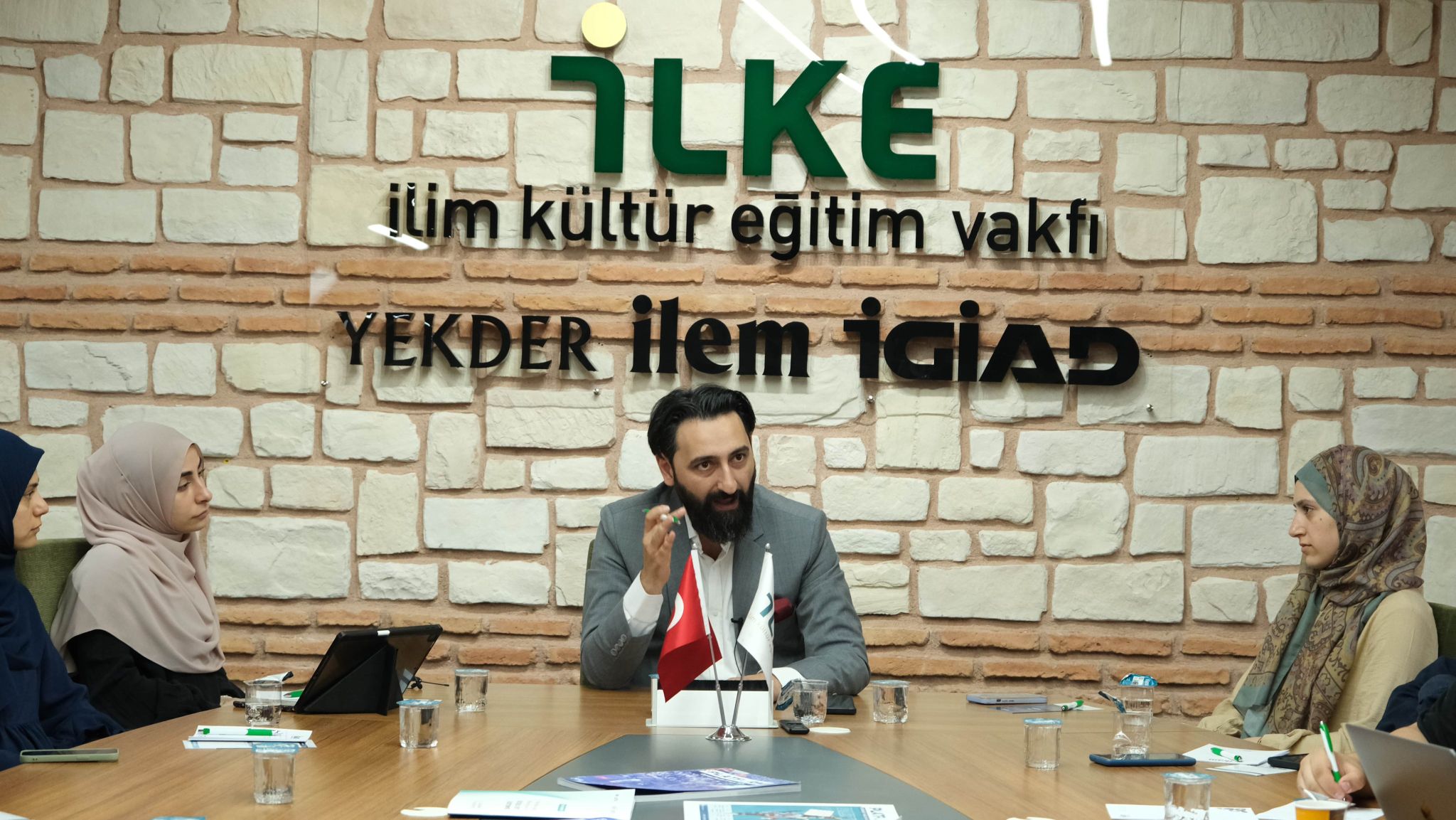
Seminar on The Palestinianization of Kashmir Held with Dr. Muzammil Ayyub Thakur
On 20 June, we hosted Dr. Muzzammil Ayyub Thakur in our İLKE Agenda program titled “The Palestinization of Kashmir.” Thakur began his speech by addressing the question of what Palestinization of Kashmir means. He emphasized that the concept of Palestinization is a compelling expression, because now the word “Palestinian” is acknowledged by everyone without the need for explanation, along with concepts such as settlement, genocide, and ethnic cleansing. Thakur then asked the participants, “Do you love Palestine more or do you hate Israel more?” Thakur stated that he thinks the feeling that unites all Muslims around the Palestinian cause is the hatred against Israel. He questioned that if Muslims can unite around the Palestinian cause with an ummah consciousness, why does this consciousness not reach Kashmir, Sudan, Bangsamoro, and other geographies of the ummah that are not on our agenda? He pointed out that while we are aware of baby Aylan (Alan Kurdi) and Ahed Tamimi, we are unaware of Tufail Mattoo, who was killed by Indian soldiers in Kashmir; 11-year-old Wamiq Farooq, who was shot in the head; or 3-year-old Burhan, who was killed in his father’s arms. He asked why we were not aware of 18-month-old Hiba Nisar, who lost one eye when she was shot with a pellet in her mother's lap, Insha Mushtaq, who was completely blind when she was also shot with a pellet, or Yawar, who became permanently disabled when a tear gas grenade hit him in the head.
Thakur emphasized that it is not the suffering of the victims but the oppression of the oppressors that we should be comparing. Therefore, we should talk about the Israelization of India and the Zionisation of Hindutva rather than the Palestinization of Kashmir. Stating that Israel and India have the same agenda, Thakur said that both Hindutva and Zionism characterize Islam as a “cancer” that needs to be cured and see Muslims as subhumans, like cockroaches. He quoted Indian political leaders calling for the rape of Muslim women, even if it means digging up their graves and exhuming their dead bodies. He emphasized that the Hindutva ideology, which, like the Zionists, sees itself as a chosen and superior race, carries the mission of “one nation, one party, one leader” like the Nazis, and said that the uniforms and salutes of Indian soldiers resemble those of Nazi soldiers.
Thakur stated that although they try to hide it, Israel and India have extremely close relations, and that India has been Israel's largest arms importer for years, and that these weapons have been used against Kashmir and Pakistan. He also stated that India and Israel share intelligence and that many Indian agents in Iran leak information to Israel. In this regard, Thakur said that when India attacked Pakistan recently, it justified the operation by claiming it was targeting those responsible for 9/11. However, this justification drew little attention from the world press and no praise from the United States, which, he argued, is a sign that the world’s terminology
is shifting. He emphasized that it is now clear what kind of state Israel is, that the post-9/11 propaganda of Israel's fight against terrorists has collapsed, and that today even the smallest Israeli action is questioned. He also said that no one cares anymore about the debate on whether Hamas is a “terrorist” organization or not; instead, the focus is on why Hamas acts the way it does and who is responsible for the suffering of the Palestinians. He emphasized that public perception, which used to side with Israel over Hamas, has changed and that Israel is failing because of this. On the other hand, Hindutva is more successful than Zionism because they are able to hide the atrocities in Kashmir from the world's public opinion. He highlighted that media outlets, human rights organizations, and humanitarian aid are not allowed in the region, and that when a Kashmiri speaks out about Kashmir, even from abroad, their family members back home are often arrested or forcibly disappeared. Therefore, he emphasized that it is the collective responsibility of all Muslims to publicize what is happening in Kashmir.
Thakur concluded his speech by returning to the question he posed at the beginning, stating that Palestine evokes a sense of romanticism in people, whereas Israel creates a hatred that drives them to take action. He emphasized that, similar to the anger and hatred towards Zionism, there should be an equal reaction to Hindutva.


